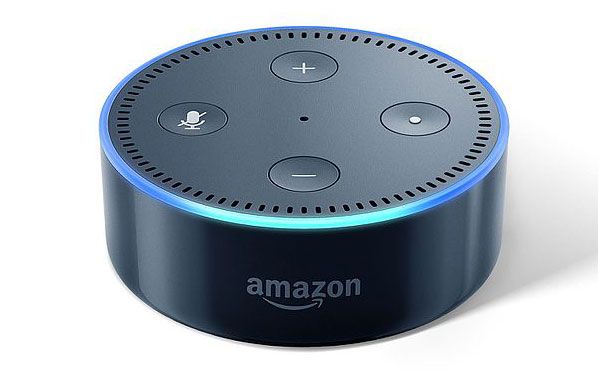“Alexa, help me promote my brand.”

My grandkids love to boss Alexa around. “Alexa, tell me a knock-knock joke.” “Alexa, play ‘Hello’ by Adele.” Fortunately, Alexa is pretty good-natured about it. But she is also really smart. Imagine being able to process all that data in a split second and provide responses to all kinds of search questions or commands. *
Recently, some of our clients have asked if voice search needs to be handled differently than desktop or mobile search. The short answer is no. Most of the same principles apply. As in traditional search marketing, it’s mostly a matter of identifying the right keywords and making sure they are strategically implanted in all the right places. Without addressing your brand’s critical keywords, you could yell at Alexa or Siri or Lady Google ad infinitum and she won’t respond in the way you might like.
The difference between voice search and traditional search is the same as between casual conversation and written narrative. When we speak to a virtual assistant, we are likely to say something like “Siri, where is the nearest pizza place?” An on-line search would more likely be typed as “pizza restaurants in South Bend.” “Pizza” is the operative keyword in both circumstances and there is obviously a geographic component as well, but the voice inquiry is in the form of a question or a command. So one needs to factor in how the question is most likely to be framed in a more conversational situation (albeit with a computer).
The really smart people who predict these things say more than half of all Internet inquiries will be performed through voice search by 2020. In that context, it is important to remember this is an emerging and evolving technology. Best practices and algorithmic calculations are certain to evolve over time. Keep in mind that the goal of voice assistant technology is to provide simple answers instantaneously. So more complex questions with multiple keywords may confuse our well-meaning virtual assistants and result in unexpected answers or no answer at all. Bottom line, at least for now, should be the K.I.S.S. principle.
That being said, there is nothing simple about the technology or the implications of this new technology on our lives as marketers. This article is intentionally short and sweet. For more substantive conversations, I would refer you to a couple of articles that others referred to me:
- http://searchengineland.com/voice-search-explosion-will-change-local-search-251776
- https://moz.com/blog/voice-conversational-search-change-seo-tactics-strategy
There are, of course, many others. Or you can go to the source and ask Google directly (probably not through Pixel, however).
In the meantime, please excuse me; I have a date with Alexa. Don’t tell my wife.
* FULL DISCLOSURE NOTICE – My son works for Apple and my son-in-law works for Amazon. They provided no information for this article, mostly because I was afraid to ask them and have them remind me how little I really know.